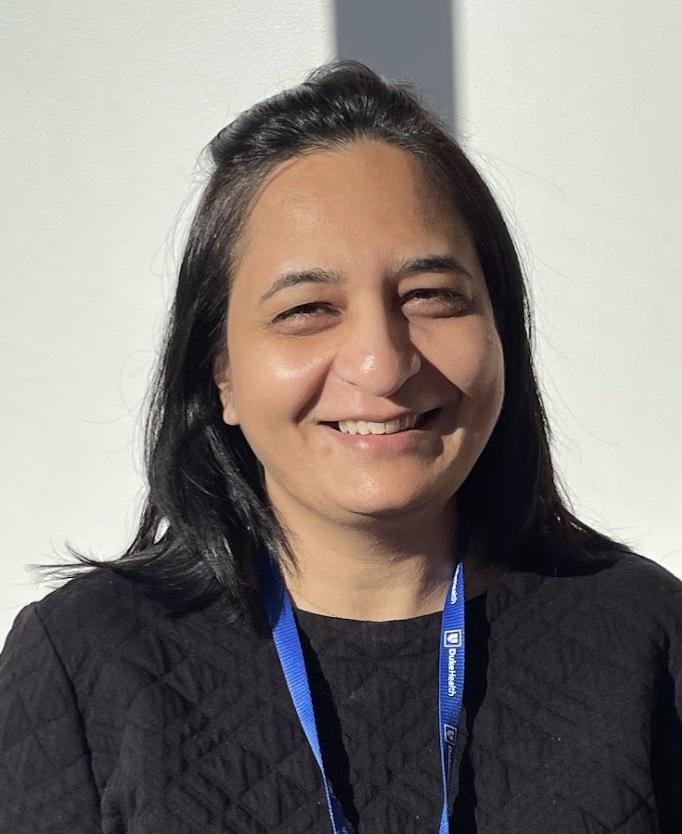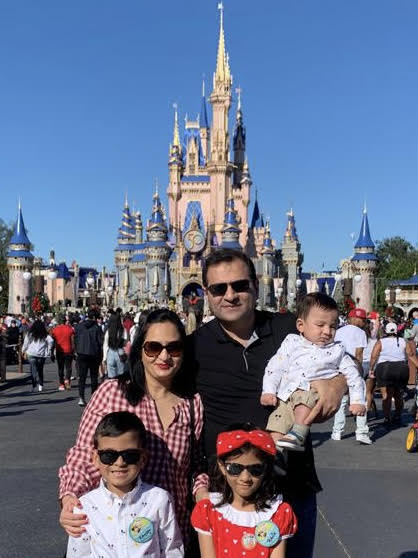
Rabia Ghazi, MBBS, first became interested in neurology when she saw how neurologists used examination findings, neuroanatomy, and clinical history to diagnose and treat complex neurological conditions. She decided to pursue movement disorders when she saw the difference deep brain stimulation (DBS) and other therapies were able to make in people’s lives. Now, she’s finishing the second of a two-year fellowship in the field, and preparing for a career that involves both clinical care and research. For this week’s Spotlight interview, Ghazi talks to us about her eighteen months as a fellow so far. She also shares her hopes of finding new treatments for movement disorders through her research and enjoying exploring the triangle and spending time with family when she’s not at Duke.
What are your current responsibilities as a movement disorders fellow? What does a typical day look like for you?
Last year, my responsibilities as a first year fellow involved the complete evaluation of patients presenting with a movement disorder (including Parkinson's disease, essential tremor, atypical Parkinsonian syndromes, dystonia, ataxia, Huntington’s disease, and secondary movement disorders), establishing a diagnosis, and coming up with a care plan. In addition, I participated in procedures including botulinum toxin injections for conditions including cervical dystonia and blepharospasm, and performing deep brain stimulation (DBS) programming.
I spent most of my time at the Morreene Road clinic, but also had the opportunity to spend Tuesdays in the operating room assisting with DBS surgery planning, microelectrode recording, and intraoperative test stimulation.
Now, as a second year fellow, I am spending most of my time in clinical research and also have the opportunity to participate in our fellow’s clinic. The clinical research participation is helping my growth as a clinician and as a researcher.
During the fellow clinic, I come across different clinical cases and challenges, but the whole experience is very exciting and includes many new and varied learning experiences as aspects of my training.
How and when did you get interested in neurology? How did you decide to focus on movement disorders in particular?
During my medical school years, the field of neurology interested me because of how the knowledge of neuroanatomy, the clinical history, and examination findings led to solving the mystery of complex neurological conditions.
While completing neurology residency, I learned how new treatment options like DBS can help improve the quality of life in patients suffering from complex conditions like Parkinson’s disease, and this led to my interest in the field of movement disorders. I find movement disorders to be an exciting field in which diagnoses can be made with a careful history and the clinical exam, and also enjoy the wide variety of effective treatment options available to help these patients.
What plans do you have for after you complete your fellowship? If you could have any job in the world, what would it be?
After fellowship I anticipate focusing on clinical practice in the field of movement disorders, and the ideal job would include dedicated time for teaching and clinical research. My area of research interest is looking for new and effective treatments for the patients with complex movement disorders like Parkinson’s disease, dystonia, and Huntington’s disease.
What’s one experience from your time as a fellow so far that’s been especially memorable or useful for you?
One memorable experience was to be part of the care of a young patient with primary generalized dystonia, who came for follow up. She had DBS implanted and had only minimal dystonia on clinical evaluation until we had to turn her DBS off (to use EMG for Botox injections for cervical dystonia), and she then exhibited severe generalized dystonia symptoms. DBS was turned back on after the procedure and she rapidly returned to having almost no symptoms. It was so satisfying to see how much of a difference DBS has made in this patient’s life.
What’s one new thing you have planned for 2023?
I am very excited to spend the rest of my second year of fellowship in Dr. Bukhari’s lab where I am learning to improve my clinical research skills. I am applying for clinical faculty positions where I can utilize my clinical and research skills.
What other passions or hobbies do you have outside of the Department?
I love watching movies and spending time with my family. The triangle area offers a lot to explore with my family, including fun activities for little ones and exploring the foods of different cultural origins.

Ghazi shared this photo of herself and family during a recent trip to Disney World.